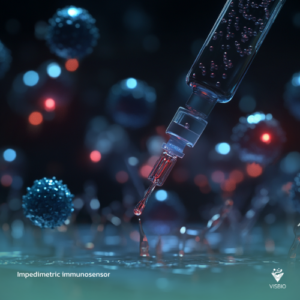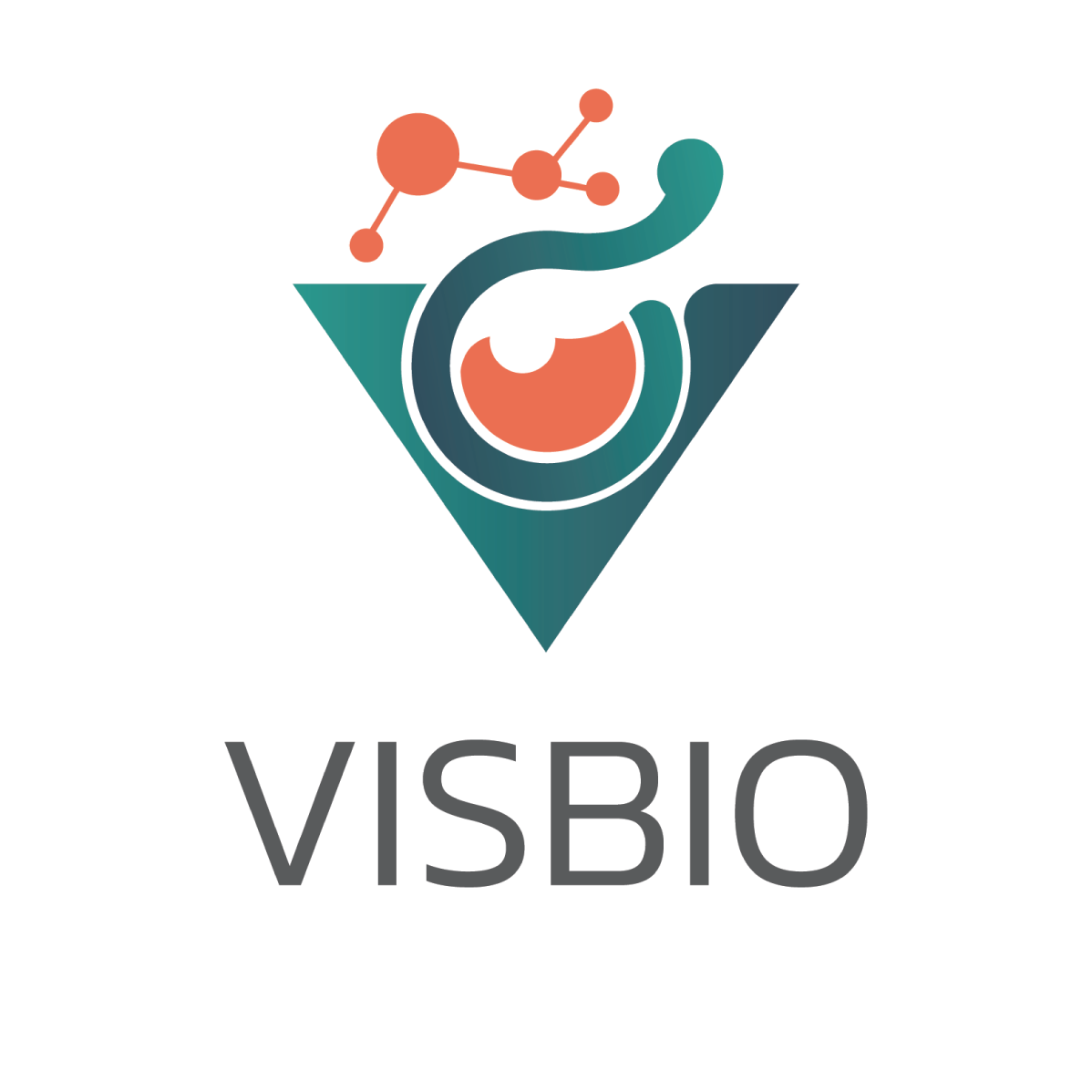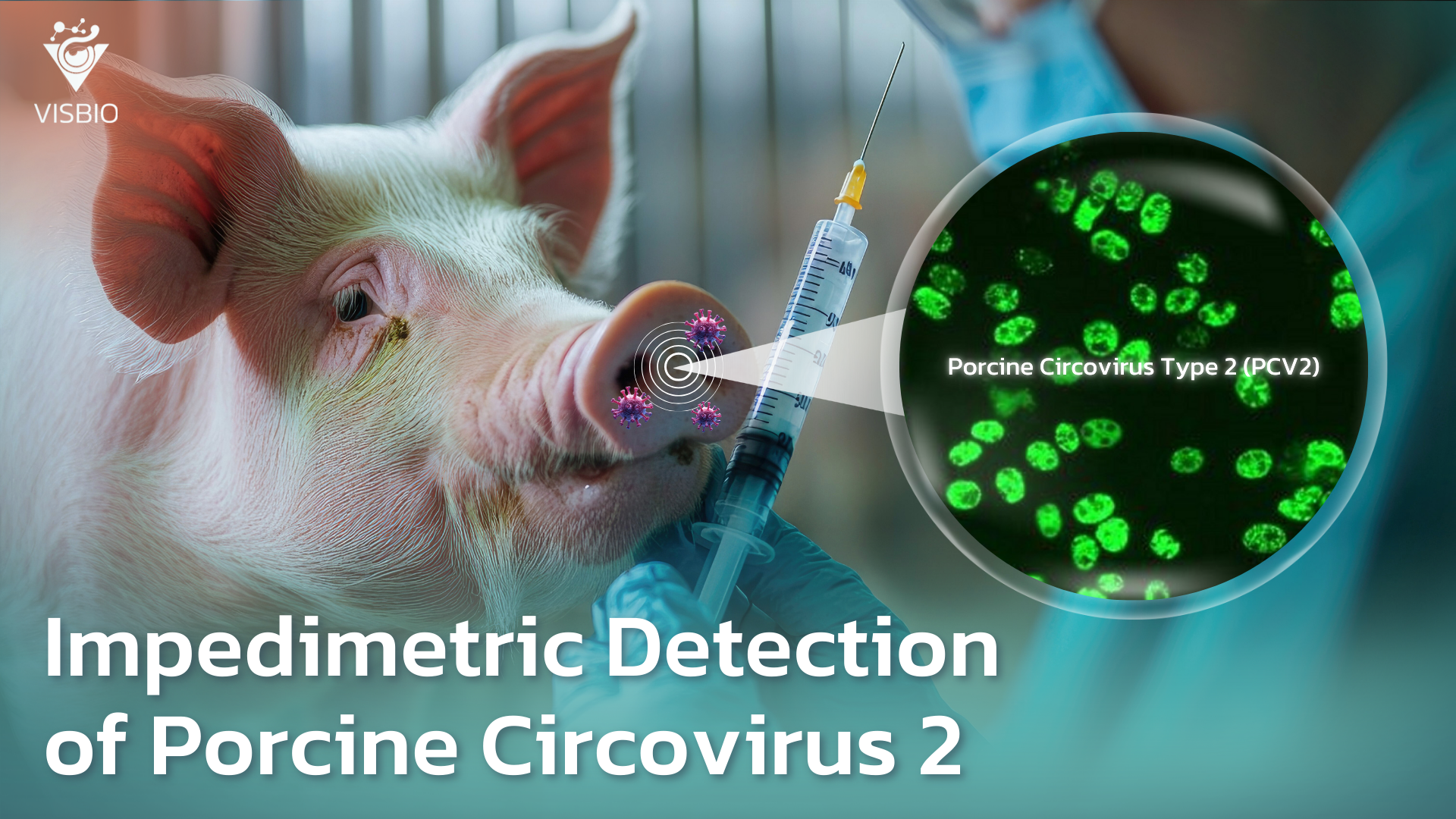Porcine Circovirus Type 2 (PCV2) is a major threat to global swine populations, causing significant economic losses due to porcine circovirus-associated diseases (PCVAD). The virus spreads quickly, leading to severe conditions like post-weaning multisystemic wasting syndrome (PMWS) in piglets, and complicating swine health management worldwide. With the agricultural industry facing continuous challenges in controlling outbreaks, the need for rapid and precise diagnostics is critical.
 This groundbreaking research, led by Associate Professor Dr. Kiattawee Choowongkomon, presents a transformative solution. Using advanced impedimetric immunosensor technology, this method enables fast, accurate detection of PCV2, offering new opportunities for the swine industry to protect livestock, reduce disease spread, and minimize financial losses.
This groundbreaking research, led by Associate Professor Dr. Kiattawee Choowongkomon, presents a transformative solution. Using advanced impedimetric immunosensor technology, this method enables fast, accurate detection of PCV2, offering new opportunities for the swine industry to protect livestock, reduce disease spread, and minimize financial losses.
Innovative Immunosensor for PCV2 Detection

The key innovation in this research is the development of a highly specific single-chain variable fragment (scFv) against the PCV2 capsid protein. These scFvs are engineered to bind precisely to the virus’s capsid, ensuring accurate detection. By utilizing electrochemical impedance spectroscopy (EIS), the immunosensor measures changes in electron transfer resistance when the virus is present, providing a highly sensitive detection method. The sensor’s limit of detection (LOD) was measured at 114 nM, proving its effectiveness in identifying even low concentrations of the virus.
In tests, the sensor demonstrated remarkable specificity, only reacting to PCV2 and not to other common swine viruses such as pseudorabies virus (PRV). This accuracy makes it an ideal tool for detecting early-stage infections, allowing swine farmers to take action before the virus spreads widely within their herds.
Cost-Effective, Scalable, and Easy to Use

One of the biggest advantages of this immunosensor technology is its affordability and scalability. Traditional diagnostic methods, such as enzyme-linked immunosorbent assays (ELISA) or polymerase chain reaction (PCR), require expensive equipment and trained personnel. In contrast, the PCV2 immunosensor is designed for ease of use in field settings. Farmers and veterinarians can conduct on-site diagnostics quickly and cost-effectively, making it accessible even in remote or small-scale operations.
The materials used to construct the immunosensor are inexpensive, and the production process is straightforward. This scalability makes it possible to deploy the technology across a wide range of agricultural environments, from large commercial farms to small, family-run operations.
What Does This Mean for Your Business?
 For livestock farmers, veterinary services, and companies involved in swine health, the introduction of this technology represents a significant advancement. Early detection of PCV2 is critical to preventing the spread of infection and reducing the risk of massive production losses. By integrating this technology into your herd management practices, you can strengthen your farm’s biosecurity protocols, ensuring healthier livestock and better production outcomes.
For livestock farmers, veterinary services, and companies involved in swine health, the introduction of this technology represents a significant advancement. Early detection of PCV2 is critical to preventing the spread of infection and reducing the risk of massive production losses. By integrating this technology into your herd management practices, you can strengthen your farm’s biosecurity protocols, ensuring healthier livestock and better production outcomes.
The scFv-based immunosensor not only helps farmers respond more rapidly to potential outbreaks, but it also reduces the costs associated with traditional diagnostic methods. With easy-to-use sensors that provide accurate, real-time results, this technology offers a streamlined approach to swine disease management, improving efficiency and profitability.
Strengthening Your Reputation for Quality
 As global markets become more demanding regarding animal health and food safety, businesses in the agricultural sector must ensure that their products meet the highest standards. Implementing advanced diagnostic tools such as the PCV2 immunosensor strengthens your farm’s biosecurity, enhancing trust with consumers and business partners. By adopting cutting-edge technologies for disease detection, you position your business as an industry leader in swine health management, boosting your reputation for quality and safety.
As global markets become more demanding regarding animal health and food safety, businesses in the agricultural sector must ensure that their products meet the highest standards. Implementing advanced diagnostic tools such as the PCV2 immunosensor strengthens your farm’s biosecurity, enhancing trust with consumers and business partners. By adopting cutting-edge technologies for disease detection, you position your business as an industry leader in swine health management, boosting your reputation for quality and safety.
Real-World Impact
This research on PCV2 detection represents a significant step forward in the field of veterinary diagnostics. With applications ranging from large-scale pig farms to smaller operations, this technology provides a practical solution for real-world challenges in the agricultural sector. Early and accurate detection of PCV2 can reduce disease outbreaks, improve herd management practices, and lead to healthier, more productive livestock.
By integrating this technology into your operations, you can protect your business from the economic fallout of viral outbreaks, streamline diagnostic procedures, and improve overall herd health. The result is not only better animal welfare but also a stronger, more competitive position in the market.
Partner with Us for Cutting-Edge Diagnostic Solutions
If you are in the livestock farming or veterinary industries, now is the time to explore how this innovative PCV2 detection technology can benefit your business. Contact us today for a free consultation, and learn how we can help you implement this groundbreaking immunosensor technology to protect your livestock, reduce costs, and ensure long-term success.
About the Author
 Associate Professor Dr. Kiattawee Choowongkomon is a leading figure in biochemical research and veterinary diagnostics, Through research collaborations with leading institutions both in Thailand and internationally. His research focuses on developing cutting-edge molecular sensors and biosensors for the detection of animal diseases, driving innovation in the agricultural and veterinary sectors.
Associate Professor Dr. Kiattawee Choowongkomon is a leading figure in biochemical research and veterinary diagnostics, Through research collaborations with leading institutions both in Thailand and internationally. His research focuses on developing cutting-edge molecular sensors and biosensors for the detection of animal diseases, driving innovation in the agricultural and veterinary sectors.
About the Research
This study focuses on the selection and characterization of single-chain variable fragments (scFv) against the Porcine Circovirus Type 2 (PCV2) capsid, and the development of an impedimetric immunosensor for virus detection. The immunosensor offers a cost-effective, scalable, and highly sensitive method for detecting PCV2, providing a practical solution for disease management in the swine industry. This research was published in ACS Omega with DOI: 10.1021/acsomega.1c03894.


